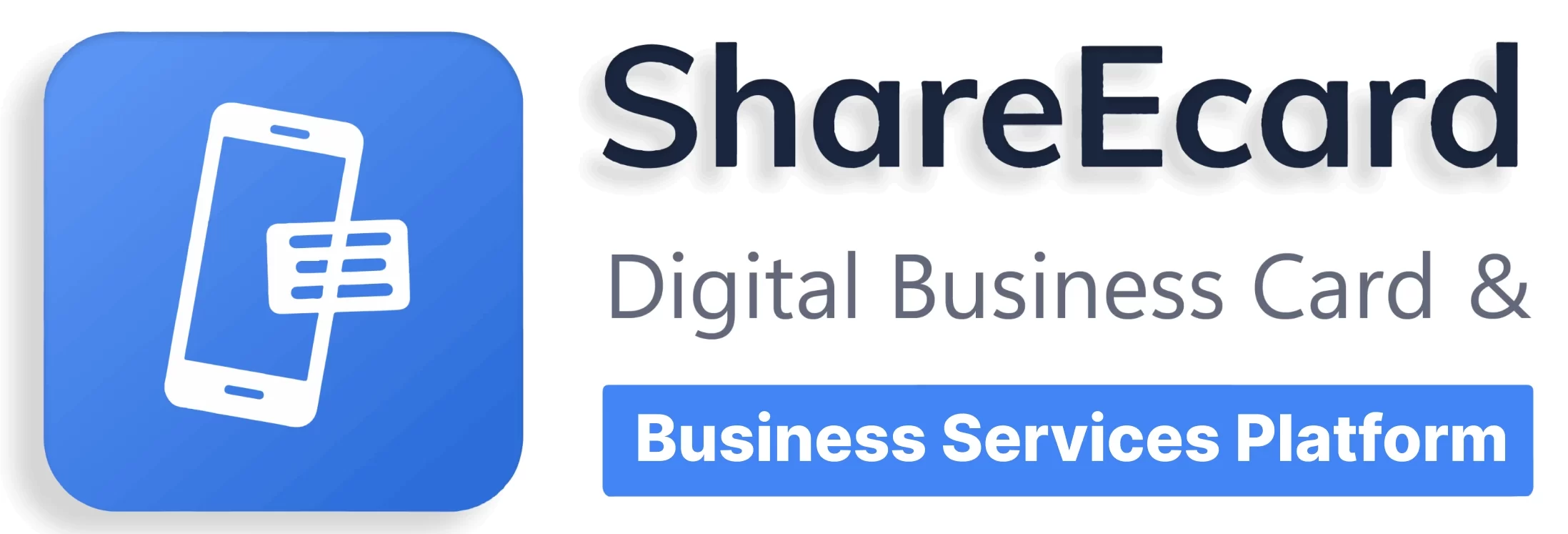For those with a passion for making a difference in people’s lives and a keen interest in the healthcare sector, the prospect of starting a healthcare business might be the next fulfilling step. In this comprehensive guide, we’ll delve into ten healthcare business ideas that not only cater to essential needs but also open doors to impactful and potentially lucrative ventures. So, let’s explore the possibilities that await you in the healthcare landscape. Read through!
17 Best Healthcare Business Ideas You Should Know
1. Mobile Health Clinics:
Bringing Healthcare to Your Community. Imagine transforming a vehicle into a mobile health clinic, equipped to provide basic healthcare services directly to communities in need. This innovative approach not only addresses accessibility challenges but also emphasizes preventive care, fostering a healthier community overall.
Benefits for Entrepreneurs:
- Accessibility: Break down geographical barriers and reach underserved communities by bringing healthcare directly to their doorstep.
- Cost-Effective: Compared to establishing a traditional clinic, the initial investment and operational costs of a mobile health clinic are significantly lower.
- Community Impact: By establishing a mobile clinic, you position yourself as a community health advocate, making a tangible impact on public well-being.
How to Implement:
- Legal Considerations: Research and comply with local regulations regarding mobile healthcare services to ensure a legal and ethical operation.
- Partnerships: Collaborate with local healthcare providers, NGOs, or government agencies to maximize outreach and impact.
- Promotion and Education: Conduct community awareness campaigns and educational programs to inform residents about the services offered by your mobile health clinic.
By bringing healthcare to your community, you’re not just running a business; you’re becoming a healthcare advocate for those who need it most.
2. Telemedicine Consulting:
Providing Virtual Healthcare Solutions. In a world increasingly reliant on technology, consider offering telemedicine consulting services, providing healthcare advice and guidance remotely. This business model not only capitalizes on the convenience of virtual healthcare but also expands your reach beyond physical boundaries.
Benefits for Entrepreneurs:
- Flexibility: Conduct consultations from anywhere, offering convenience to both you and your clients. This flexibility can attract a diverse client base.
- Scalability: Leverage technology to provide consultations to a broader audience, transcending geographical limitations and tapping into a global market.
- Specialized Services: Identify and specialize in specific healthcare niches, such as mental health or chronic disease management, to differentiate your consulting services.
How to Implement:
- Technology Setup: Invest in secure and user-friendly telemedicine platforms to ensure a seamless virtual consultation experience.
- Specialized Training: Enhance your expertise by undergoing additional training or certifications, especially if you plan to offer specialized consulting services.
- Marketing Strategies: Develop a robust online presence through digital marketing channels. Educate potential clients about the advantages of telemedicine and your specialized services.
By providing virtual healthcare solutions, you’re not just running a business; you’re contributing to the evolution of accessible and convenient healthcare.
3. Senior Care Services:
Caring for the Elderly in Their Homes. Start a business that focuses on providing in-home care services for seniors, ranging from companionship to medical assistance. This empathetic and hands-on approach not only addresses the specific needs of the aging population but also brings comfort and support to their homes.
Benefits for Entrepreneurs:
- Growing Market: Capitalize on the increasing aging population and the rising demand for senior care services. The demographic shift presents a significant business opportunity.
- Personal Fulfillment: Create a business that goes beyond financial gains. Making a positive impact on the lives of seniors and their families adds a fulfilling dimension to your venture.
- Holistic Approach: Offer comprehensive senior care services that address both physical and emotional well-being. This holistic approach differentiates your services in a competitive market.
How to Implement:
- Certifications and Training: Ensure your staff is well-trained and certified for senior care. Investing in ongoing training ensures that your team is equipped to handle the evolving needs of elderly clients.
- Personalized Care Plans: Tailor your services to meet the unique needs of each senior client. Adopting a personalized approach enhances the quality of care and builds trust with clients and their families.
- Family Involvement: Recognize the importance of family in senior care. Establish strong relationships with the families of your senior clients, providing them with peace of mind and maintaining open communication.
By offering in-home senior care services, you’re not just running a business; you’re becoming a support system for the elderly and their families.
4. Health and Wellness Coaching:
Empowering Individuals to Live Healthier Lives. If you have a passion for health and wellness, consider becoming a health and wellness coach, guiding individuals on their journey to better health. This business goes beyond traditional healthcare services, focusing on preventive measures and lifestyle changes that contribute to long-term well-being.
Benefits for Entrepreneurs:
- Personalized Approach: Tailor your coaching to the individual needs and goals of your clients. This personalized approach builds strong client-coach relationships.
- Holistic Health: Offer guidance not only on physical health but also mental and emotional well-being. Adopting a holistic perspective attracts clients looking for comprehensive wellness solutions.
- Continuous Learning: Stay updated on the latest trends in health and wellness to provide cutting-edge coaching services. Continual learning enhances your credibility and ensures your clients receive the most up-to-date information.
How to Implement:
- Certifications: Obtain relevant certifications to establish credibility in the competitive wellness coaching industry. Certifications not only validate your expertise but also reassure clients about the quality of your services.
- Client Engagement: Build a strong rapport with your clients to foster trust and commitment. Establishing a connection encourages clients to actively participate in their wellness journey.
- Online Presence: Develop a website, create engaging content, and leverage social media to reach a wider audience. A strong online presence expands your reach and attracts clients seeking virtual coaching services.
By being a health and wellness coach, you’re not just running a business; you’re becoming a catalyst for positive lifestyle changes.
5. Medical Billing Services:
Simplifying Financial Processes for Healthcare Providers. Start a business that provides medical billing services to healthcare providers, helping them navigate the complexities of billing and insurance claims. This behind-the-scenes service is crucial for the financial efficiency of healthcare facilities, allowing them to focus on patient care.
Benefits for Entrepreneurs:
- Industry Stability: The demand for efficient medical billing services is constant in the healthcare sector. Healthcare providers consistently seek reliable partners to handle their billing processes.
- Expertise in Demand: Utilize your knowledge in billing and coding to streamline processes for healthcare providers. Your expertise becomes a valuable asset for healthcare facilities looking to enhance their financial operations.
- Cost-Efficiency: Help healthcare providers reduce administrative costs and improve their overall financial efficiency. Offering cost-effective solutions positions your business as a valuable partner in the industry.
How to Implement:
- Stay Informed: Keep abreast of changes in healthcare regulations and billing codes. Staying informed ensures that your services remain compliant and up-to-date.
- Technology Integration: Invest in billing software to enhance accuracy and efficiency. Technological tools not only improve the speed of billing processes but also reduce the likelihood of errors.
- Client Education: Educate healthcare providers on the benefits of outsourcing their medical billing processes. Clear communication about the advantages of your services strengthens client relationships and encourages long-term partnerships.
By offering medical billing services, you’re not just running a business; you’re providing invaluable support to healthcare professionals, allowing them to focus on patient care.
6. Medical Equipment Leasing:
Launch a business focused on leasing medical equipment to healthcare facilities. As medical technology evolves rapidly, many practices prefer leasing over buying, given the significant upfront costs. By offering a range of essential equipment on flexible lease terms, you facilitate smoother operations for healthcare providers while ensuring a steady revenue stream for your business.
Benefits for Entrepreneurs:
- Capital Efficiency: With healthcare facilities avoiding hefty upfront costs, your leasing service addresses a critical need in the market, making it an economically viable venture.
- Diverse Client Base: Cater to a broad spectrum of healthcare providers, from small clinics to large hospitals, ensuring consistent demand for your leasing services.
- Upgradation Opportunities: Regularly update your equipment inventory, allowing clients access to the latest medical technologies without long-term commitments.
How to Implement:
- Market Research: Identify the most sought-after medical equipment in your target region. Understanding market demand ensures optimal inventory management.
- Partnerships: Collaborate with equipment manufacturers and suppliers to secure favorable leasing terms and ensure equipment reliability.
- Maintenance Services: Offer optional maintenance packages to clients, ensuring the longevity and optimal performance of leased equipment.
7. Healthcare Staffing Agency:
With the healthcare sector continually expanding, there’s a growing demand for qualified personnel: specifically, medical professionals with a completed MBBS in USA universities, and other prestigious academic establishments. By bridging the gap between healthcare facilities and skilled professionals, you play a pivotal role in enhancing patient care standards.
Benefits for Entrepreneurs:
- Growing Demand: As healthcare facilities expand and new ones emerge, the need for qualified staff becomes paramount, ensuring consistent business growth.
- Specialized Services: Offer specialized recruitment solutions for niche healthcare roles, such as telemedicine specialists or ICU nurses, positioning your agency as an industry leader.
- Flexible Engagement Models: Provide both temporary and permanent staffing solutions, catering to diverse client requirements.
How to Implement:
- Credential Verification: Establish rigorous screening processes to verify the qualifications and credentials of healthcare professionals, ensuring client satisfaction and compliance.
- Continuous Training: Organize regular training sessions and workshops for registered professionals, enhancing their skills and marketability.
- Client Relationships: Foster strong relationships with healthcare facilities by understanding their specific staffing needs and delivering tailored recruitment solutions.
8. Healthcare IT Solutions:
Whether it’s electronic health record systems, patient management software, or telehealth platforms, your IT solutions can revolutionize the way healthcare is delivered and managed.
Benefits for Entrepreneurs:
- Innovation at Scale: Leverage technology to address critical challenges in healthcare, positioning your business at the forefront of digital transformation.
- Recurring Revenue: Adopt a subscription-based model for your software solutions, ensuring consistent revenue streams and fostering long-term client relationships.
- Customization Opportunities: Offer bespoke software solutions, allowing healthcare providers to tailor functionalities according to their specific needs.
How to Implement:
- Market Analysis: Conduct in-depth market research to identify gaps in existing healthcare IT solutions, ensuring your offerings address genuine industry needs.
- Development Expertise: Build a team of skilled developers and IT professionals capable of creating robust, secure, and user-friendly software solutions.
- Regulatory Compliance: Ensure your software solutions adhere to healthcare data privacy and security regulations, instilling trust among potential clients.
9. Nutrition and Dietetics Consultancy:
With rising awareness about the importance of nutrition in disease prevention and management, your consultancy can play a pivotal role in fostering healthier communities.
Benefits for Entrepreneurs:
- Growing Awareness: As the importance of nutrition gains prominence, the demand for expert guidance in this field is poised for exponential growth.
- Holistic Approach: Offer comprehensive nutrition solutions, encompassing dietary planning, nutritional counseling, and lifestyle recommendations.
- Community Impact: By promoting healthy lifestyles, you contribute to reducing the prevalence of lifestyle-related diseases, making a tangible difference in community health.
How to Implement:
- Certification: Obtain relevant certifications in nutrition and dietetics to establish credibility and reassure clients about your expertise.
- Client Assessment: Develop robust assessment protocols to understand clients’ unique health profiles, enabling personalized recommendations.
- Educational Workshops: Organize workshops and seminars to educate the community about the fundamentals of nutrition, fostering a culture of health awareness.
10. Pharmaceutical Distribution Services:
With the healthcare sector’s reliance on a consistent supply chain, your distribution services play a critical role in ensuring uninterrupted access to vital medications.
Benefits for Entrepreneurs:
- Critical Role: As a linchpin in the healthcare supply chain, your distribution services are indispensable, ensuring the seamless availability of medications.
- Scalability: With the potential to expand your distribution network, you can cater to a broader geographical area, enhancing your business’s growth prospects.
- Quality Assurance: Implement stringent quality control measures to ensure the authenticity and integrity of distributed medications, building trust among stakeholders.
How to Implement:
- Regulatory Compliance: Familiarize yourself with pharmaceutical regulations and licensing requirements to ensure your distribution business operates within legal parameters.
- Logistics Expertise: Develop a robust logistics infrastructure capable of handling and transporting medications under specified conditions to maintain their efficacy.
- Stakeholder Collaboration: Build strong relationships with pharmaceutical manufacturers, healthcare facilities, and regulatory bodies, fostering collaborative partnerships that drive business growth.
11. Medical Equipment Sales and Leasing
The need for medical equipment, ranging from basic supplies to advanced diagnostic machines, is a constant in healthcare facilities. Starting a business that sells or leases medical equipment can cater to hospitals, clinics, and even home care settings. The leasing model is particularly attractive for high-cost equipment, allowing healthcare providers to access the latest technologies without the full upfront cost. Success in this area requires knowledge of medical equipment trends, regulatory compliance, and effective supply chain management.
12. Health Informatics Solutions
Health informatics combines healthcare, information technology, and data analytics to improve patient outcomes and operational efficiency. Businesses in this space develop software and platforms that help healthcare providers manage patient data, streamline processes, and enhance decision-making through analytics. With the increasing complexity of healthcare data and the need for interoperability among systems, there’s a significant demand for innovative informatics solutions. This venture requires technical expertise in software development and a deep understanding of healthcare operations.
13. Personalized Medicine and Genomics Consulting
Personalized medicine, powered by genomics, is tailoring medical treatment to individual characteristics, behaviors, and genetic makeup. Starting a consulting firm in this niche can involve guiding healthcare providers and patients through the complexities of genetic testing and personalized treatment plans. This idea taps into the growing consumer interest in genetic information for health, ancestry, and personal wellness. A strong background in genetics, biotechnology, and patient counseling is essential for entrepreneurs in this field.
14. Mental Health Platforms
Mental health awareness is at an all-time high, driving demand for accessible and effective mental health services. Online platforms that offer counseling, therapy sessions, and mental health resources can reach a wide audience, providing support for those who may not access traditional therapy. Key considerations for this business include ensuring client confidentiality, offering a wide range of therapeutic services, and maintaining a qualified team of mental health professionals. The stigma around mental health is diminishing, and digital platforms can play a significant role in making mental health care more accessible.
15. Home Healthcare Services
With an aging population and a preference for aging in place, home healthcare services are increasingly in demand. This business involves providing medical care, nursing, therapy, or assistance with daily activities to patients in their homes. Entrepreneurs can focus on specific niches within home healthcare, such as post-operative care, elderly care, or chronic disease management. Success in this field requires a strong foundation in healthcare, compliance with regulations, and the ability to manage a team of healthcare professionals.
16. Fitness and Rehabilitation Tech
Technological innovations in fitness and rehabilitation offer new ways to enhance physical therapy, exercise, and recovery. Businesses can develop wearable devices, mobile apps, or virtual reality systems that guide users through exercises, track progress, and provide feedback. This idea caters to individuals recovering from injuries, athletes looking to improve performance, and anyone interested in maintaining physical health. Understanding the latest trends in fitness technology, along with knowledge of human physiology and rehabilitation practices, is crucial for success in this niche.
17. Nutritional Supplement Lines
The nutritional supplement industry continues to grow, driven by increasing awareness of health and wellness. Entrepreneurs can create their own line of supplements targeting specific health needs, such as immune support, energy, or weight management. Success in this business requires a thorough understanding of nutritional science, effective branding, and compliance with health and safety regulations. Establishing a strong online presence and distribution network can help reach a wide market.
Conclusion
In the vast landscape of healthcare, opportunities abound for entrepreneurs with a vision to make a meaningful impact. From mobile health clinics and telemedicine consulting to senior care services, health and wellness coaching, and medical billing, the healthcare industry offers diverse avenues for those looking to combine passion with business acumen. So, take the plunge into the world of healthcare entrepreneurship, where your skills and compassion can create positive change. Happy entrepreneuring!
We hope this guide serves as a starting point for your venture into the healthcare industry. If you have thoughts, ideas, or questions, feel free to share them in the comments below. Stay tuned for more insightful business guides!




